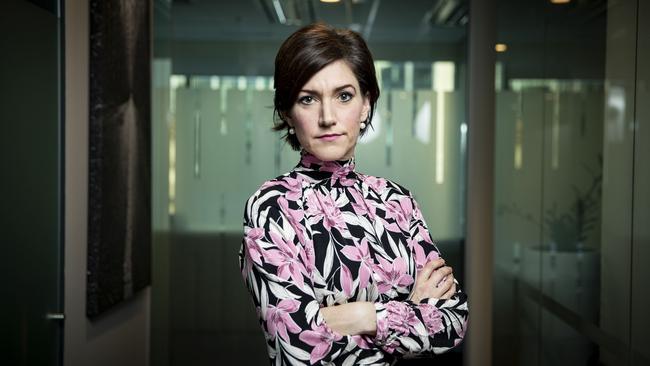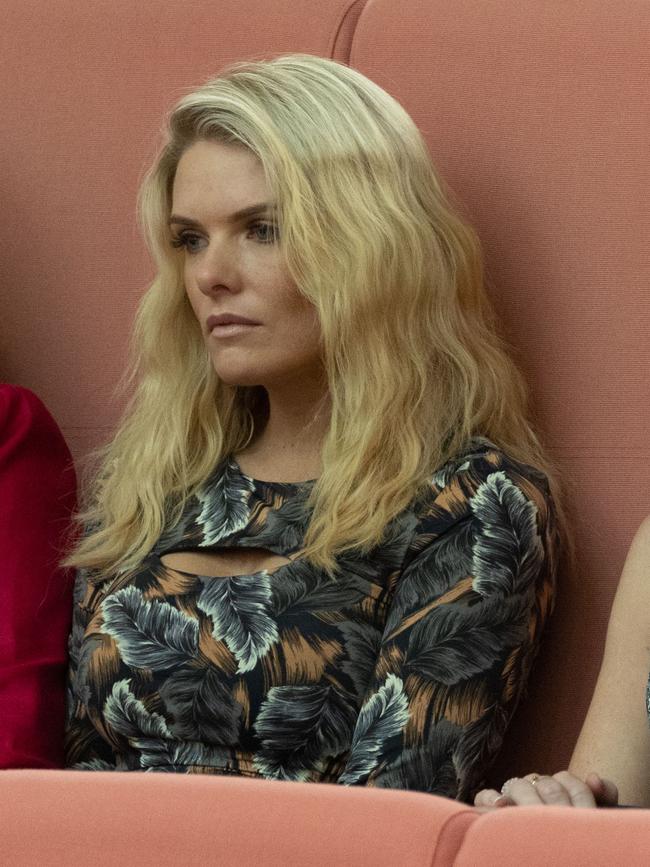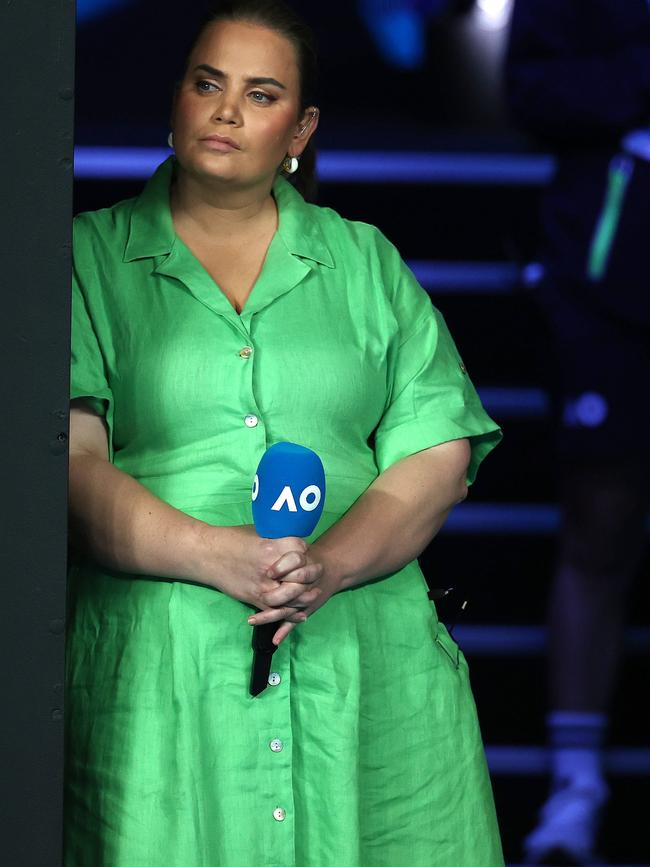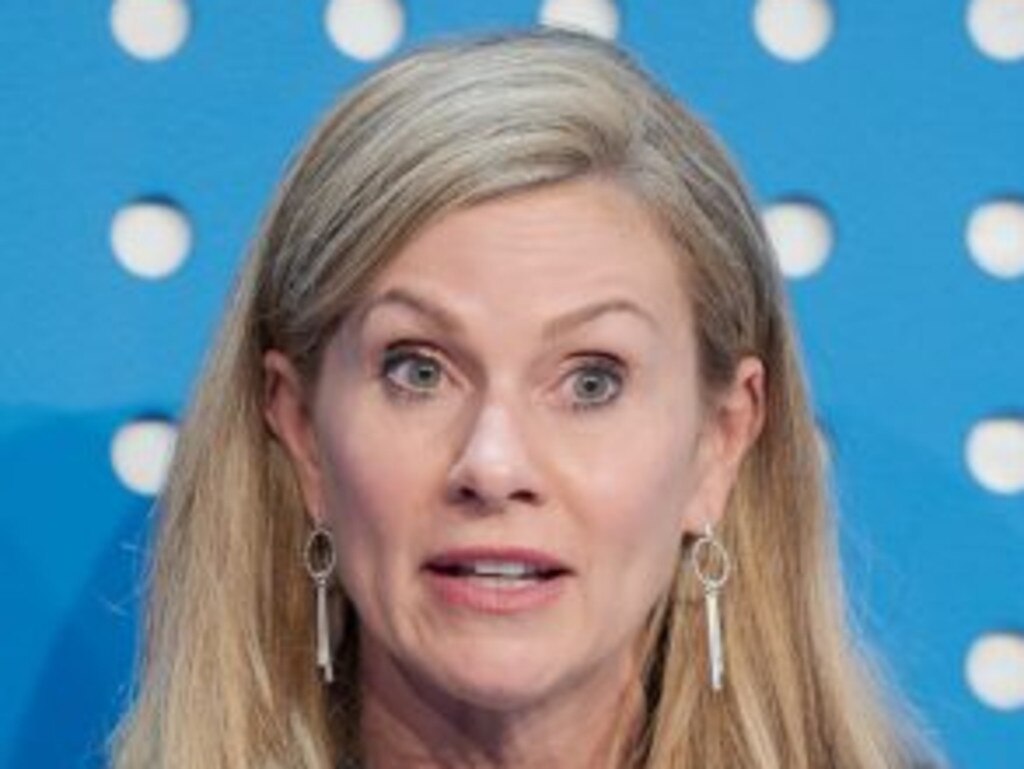
This year is off to an ugly start, with more evidence of the abuse women suffer.
Former Australian tennis star turned commentator Jelena Dokic was subjected to online abuse about her weight and mental health during her Australian Open tennis television role.
Last week British actor and comedian Emily Atack released a BBC documentary about the sexualised and misogynistic abuse she receives online. During an in-depth interview with The Times, the 33-year-old said “I feel like I’m being sexually assaulted hundreds of times a day”, because she is – that is what men sending pictures of their genitals, and rape and sexual assault threats, to a woman represents, sexual assault.
We have more than enough women in Australian public life who have shared their horrific stories of online abuse to warrant bipartisan action by the federal parliament.
Here is just a small sample representing the breadth of Australian broadcasting and the spectrum of Australian politics.
In terms of journalists, the ABC’s Leigh Sales, former Nine presenter and now Sky News host Erin Molan, the Seven Network’s Natalie Barr and Guardian Australia’s Van Badham have documented their experiences.
In politics, the former federal member for Adelaide, Labor’s Kate Ellis, in her important book Sex, Lies and Question Time, Greens senator Sarah Hanson-Young and me, the former Liberal member for Boothby, have done the same.
The impact on the workplace is obvious; women must not only do their primary job but also expend precious time and energy dealing with online abuse in practical and personal ways.
Yes, online death threats are commonplace for men and women in public life, but what men rarely face are the constant threats of rape, sexual assault, and sexualised and misogynistic abuse.

Men don’t tend to be told they go down on their “knees to give any Lib an on-camera blowjob” (Sales), that they are a “slut” who “belong(s) in the kitchen” (Molan), that they should “die bitch”, and “this bitch needs to die, how are we going to do it?” (Barr).
Nor would they be told “I hate this f..king bitch commo pinko slut Adelaide bitch”, and “how many cocks do you reckon (she) sucked to get preselection?!” (Ellis). “Stupid cow”, “silly cow”, “stupid f..king slut you are sucking people smugglers balls” (Hanson-Young), nor that she “probably bedroomed her way in”, or she’s a “whiny little bitch”, a “putrid little mutt”, who “I’d smash but that’s also probably due having a taste for older women and a fantasy of grudge f..king conservatives” (me).
This is just a tiny selection of the abuse women in public life face every day, along with the pile-ons that occur when hundreds or thousands of trolls decide to target you at once, flooding your social media pages with more abuse, which is particularly common if you highlight the abuse or try to fight back.
The most frustrating thing about this situation is that fixing it is relatively simple.
All it will take is legislation, and there are a range of options available (and no, for a range of reasons I did not support the so-called Anti-Trolling Bill proposed by my government last term).
First, federa

l parliament can create protections for women under the Sex Discrimination Act, similar to section 18C of the Racial Discrimination Act, making it an offence to harass, intimidate or abuse a woman based on her sex according to the reasonable person test. This would get to the essence of online and in-person abuse – the hatred of women – and yes, I have omitted the section 18C words offend or insult, for now.
If my suggestion offends or insults your libertarian streak, or notions of free speech, then please re-read the tiny sample of online abuse women receive in the course of just trying to do their job, and ask yourself: “Would I say this – or want this said – to my mother, sister, wife or daughter?”
Second, parliament can amend the Criminal Code 1995 to specifically include women as a protected group, meaning the Australian Federal Police would have to afford women a greater degree of care and protection.
Third, parliament should immediately commission a parliamentary inquiry to examine other regulatory mechanisms to keep women safe online, starting with those suggested by Ginger Gorman in her groundbreaking book Troll Hunting (2019).
Gorman’s extensive research, and consultation with academic, regulatory and industry experts, produced several important legislative proposals.
These include increased requirements on social media companies such as traceability of offenders, “take down” laws requiring the removal of offending posts within 24 hours coupled with multimillion-dollar fines, and a legislated duty of care for all big tech corporations.
If we, as a society, truly care about women’s equality in the workplace, and women’s safety within our community, parliament should not hesitate to legislate and investigate other protections.
Nicolle Flint was the Liberal member for the South Australian seat of Boothby from 2016 to 2022.






Here is my plea to federal parliament as sittings commenced for 2023: fix the online abuse of women. The future of our democracy depends on it. So, too, does women’s success in public life and, more fundamentally, their society-wide safety.